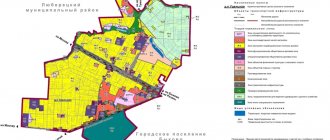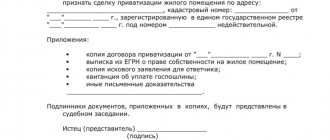Law
The privatization law, in force throughout our country since 1991, is undoubtedly a reliable guarantor of providing almost every Russian with their own housing, however, according to its 2012 edition, many persons entitled to take advantage of this prerogative were in limbo.
The result of this was that a large number of Russians, in order to obtain the square meters allocated to them by the state, had to go through numerous legal battles. The presence of such an obstacle was the main reason that many apartments remained in state ownership.
Examples of such difficult moments include:
- It is mandatory to obtain permission for denationalization from all persons who have ever had even the slightest connection to this residential premises. Thus, the law established the mandatory obtaining of permission even from “former relatives,” who are previously divorced spouses.
- Obtaining permission for denationalization was initially required even in cases where citizens living on these square meters had previously managed to exercise their right to denationalize their living space.
New amendments to the denationalization law in 2012 removed these obstacles, clearly emphasizing that:
- Each person has the right to privatize housing only once in his life.
- Former spouses are strangers to each other, therefore permission to register privatization from ex-members of the same family is no longer required.
Despite the introduction of such changes, which largely simplified the procedure for denationalization of residential premises in 2015, the number of Russians who did not have time to privatize their housing remained huge, which was the reason why legislators extended the period for free privatization.
And today, the prerogative to purchase an apartment free of charge from the state can be used until 2021 inclusive, therefore, persons who have not had time to exercise their legal rights should hurry up, since the further fate of this bill is unknown, and therefore such a course of events as the final completion of privatization cannot be ruled out in Russia.
Who cannot privatize an apartment
As you know, any rule has its exceptions, and the privatization law does not grant the right of denationalization to all persons registered in a residential premises.
Thus, the following categories of citizens do not have the right to participate in this process:
- Incapacitated persons.
- Persons who have already taken part in the denationalization of residential premises once.
The lack of the right to privatize incapacitated persons is explained by their state of health and their inability to independently make such serious decisions as the housing issue.
Repeated participation in privatization is not provided for by the basic law, which allows for the possible denationalization of residential premises.
The remaining category of persons registered in privatized housing has the full prerogative to become the owner or proprietor of state housing.
Who will become the owner of privatized housing
After registration of privatization, all citizens who took part in the denationalization procedure become the new owners of residential premises. Only those persons who, when preparing documents for denationalization, issued a notarized refusal to participate in denationalization, are deprived of any share in this residential premises.
Persons at the time of denationalization who have not reached the age of majority become full owners along with persons who have full legal capacity.
Privatization is a unique opportunity to acquire your own housing, but still, before making the final right decision, you need to weigh all the pros and cons of this procedure, and only after that can you give an accurate answer to the question: “Does one become a homeowner on the basis of denationalization?” We hope that our article will help you find the answer to your questions.
Required documents
In general, the list of documents, despite its large number, is simple and to collect it you will only need to spend some of your personal time.
To register residential premises as private property on the basis of denationalization, you need to prepare the following package of documents:
- Social rent agreement. If it is not available, you should contact the settlement center at your place of residence.
- Technical certificate. It can be ordered from the Technical Inventory Bureau.
- Cadastral passport , which provides detailed information about the area of the apartment and its layout.
- An extract from the house register , for which everyone registered in the residential premises must apply, along with a social tenancy agreement, to their passport office. The validity period of this document is only fourteen days.
- Extract from the registration chamber for residential premises subject to denationalization.
- A certificate stating that previously each of the persons participating in privatization did not take advantage of this prerogative.
- Certificate of absence of debts on utility bills.
- Notarized refusal to participate in privatization of persons who, of their own free will, decided to renounce this right.
- Identification documents of each participant in privatization , which are a passport, and for minors - a birth certificate.









